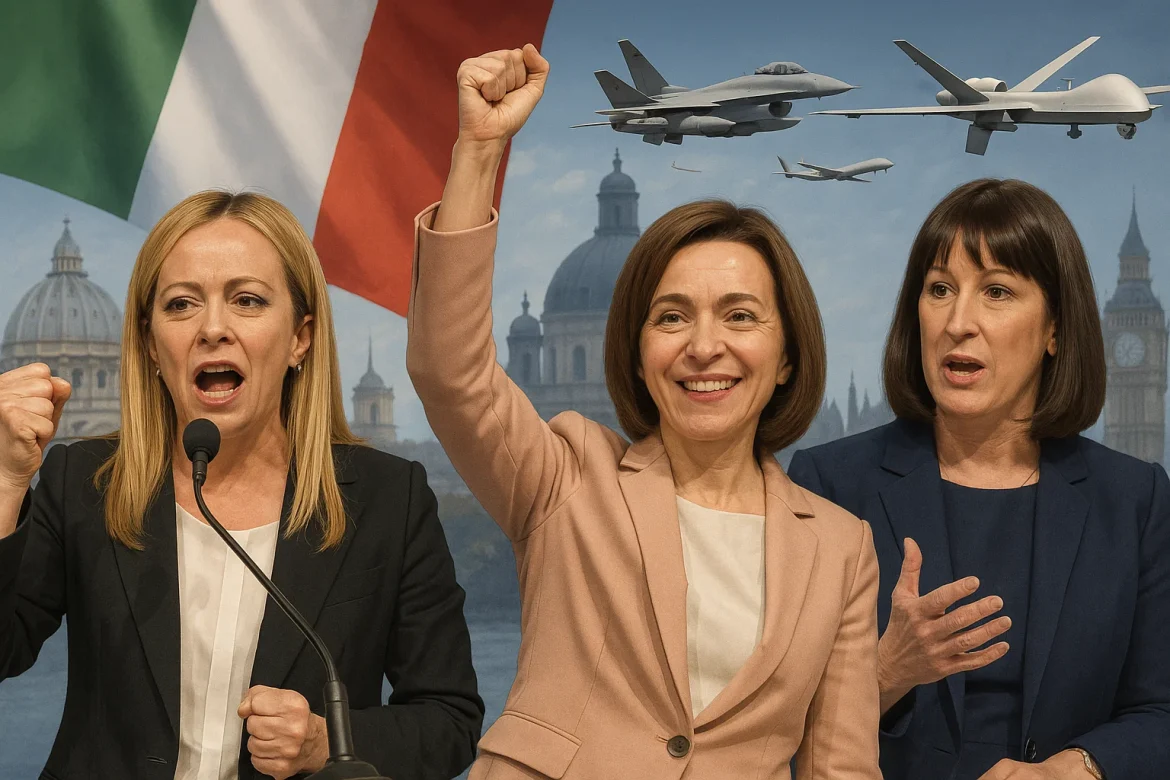Europe witnessed a flurry of political and security developments on Monday, from decisive election victories in Italy and Moldova to economic warnings in the UK and heightened NATO defenses in the Baltic.
Leaders are consolidating power, pursuing integration or fiscal stability, and responding to rising regional threats, reflecting the continent’s shifting political and strategic landscape ahead of key upcoming challenges.
A glance at the major news of the continent today.
Meloni strengthens grip with Marche win
Italy’s Prime Minister Giorgia Meloni has scored a significant victory in the Marche regional elections, solidifying her political standing ahead of next year’s national polls.
Meloni’s centre-right coalition won more than 40% of the vote, outperforming expectations and reinforcing her growing influence across Italy.
The Marche region, a traditional battleground, saw a strong turnout with voters leaning towards Meloni’s conservative approach on economic reforms and immigration.
Her main opponents, from the centre-left Democratic Party, failed to make substantial gains, reflecting challenges for the opposition ahead.
Political analysts say this win boosts Meloni’s position, confirming public trust in her leadership and potentially shaping Italy’s political landscape for the foreseeable future.
The result also sends a message to other European leaders watching Italy’s rightward shift. Meloni is expected to continue pushing her agenda firmly while preparing for the crucial national elections next year.
Sandu’s party wins mandate for EU path
Moldova’s pro-European Party of Action and Solidarity (PAS) secured a decisive victory in the parliamentary elections, reinforcing the country’s push toward EU integration and away from Russian influence.
PAS, led by President Maia Sandu, won just over 50% of the vote, translating into a solid majority of approximately 55 seats in the 101-member parliament.
The pro-Russian Patriotic Electoral Bloc trailed with around 24% of votes and 26 seats.
The election was marked by tension, including reports of Russian interference attempts, cyberattacks on election infrastructure, and fake bomb threats at polling stations both within Moldova and abroad.
Despite these challenges, turnout was strong at about 52%, and the diaspora’s participation was pivotal.
European leaders, including EU Commission President Ursula von der Leyen and Ukrainian President Volodymyr Zelenskyy, praised the vote as a clear message for democracy and European integration.
Moldova continues its bid for EU membership, aiming for accession by 2030.
Reeves warns of the UK’s tough economic choices
At the Labour Party conference in Liverpool, Chancellor Rachel Reeves delivered a sobering speech on the challenges facing the UK economy.
She acknowledged that tough decisions lie ahead, warning that rising global conflicts, tariffs, and borrowing costs have made managing public finances harder than expected.
Reeves pledged to avoid reckless spending while keeping taxes, inflation, and interest rates as low as possible.
She hinted that tax rises might be necessary in the upcoming November budget, though she ruled out increasing headline rates like VAT or income tax.
Reeves emphasized her commitment to economic responsibility and criticized previous Conservative mismanagement, pointing to soaring mortgage costs during Liz Truss’s mini-budget.
She also promised support for young people, guaranteeing paid work placements for those unemployed on Universal Credit for 18 months.
While details were scarce, her message was clear: economic stability and growth will be the focus as Labour prepares for a challenging budget.
NATO bolsters Baltic air defenses
NATO is intensifying its aerial surveillance over the Baltic Sea as drone threats near European airports and military bases surge.
Ahead of key summits in Copenhagen, France, Germany, and Sweden are reinforcing Denmark’s air defenses amid escalating incidents, including serious airspace violations by Russian warplanes.
Tensions are rising within the alliance, while Poland signals readiness to use lethal force against intruders, other members urge caution, reserving such measures as a last resort.
NATO’s Supreme Commander in Europe, US General Alexus Grynkewich, oversees responses to these violations, balancing threat assessment and proportional reaction.
The alliance faces a dilemma: engaging the relatively cheap drones risks revealing NATO’s tactics, but ignoring incursions risks encouraging further violations.
Poland’s blunt warnings and activated air defenses underscore the growing stakes.
Meanwhile, NATO struggles with equipment deployments that may detract from the support Ukraine urgently needs, highlighting the complex strategic balance amid ongoing Russian provocations in the region.
The post Europe bulletin: key elections, UK economic alerts, NATO strengthens defenses appeared first on Invezz
